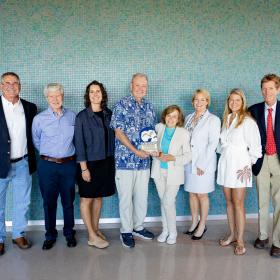Founded through one of the most extraordinarily generous gifts ever for the Texas A&M University System, Ed Harte’s $46 million desire to make a difference for the Gulf sparked the establishment of an institute at Texas A&M University-Corpus Christi – the Harte Research Institute (HRI).
Inspired by Dr. Sylvia Earle’s book Sea Change, and her leadership of a distinguished Advisory Council for HRI, the original team – Dr. Wes Tunnell Jr., Dr. Robert Furgason and Gail Sutton set about making that vision a reality. They began to assemble endowed chairs, staff and students, secured funding, designed and completed construction of the building, and laid groundwork for HRI to become an international player for Gulf research.
The timeline below can only highlight the extraordinary growth of HRI since its origin in 2000. Fully implementing the HRI Model is at the center of the institute's past and future success in advancing its mission.
Dr. Wes Tunnell, TAMU-CC Biology Professor and founder of the Center for Coastal Studies at TAMU-CC is named HRI Associate Director. In that role he led the strategic planning effort to organize HRI and design the HRI building.

GulfBase.org came online in October 2002 as a searchable and sortable website for all Gulf researchers and research institutes. The GulfBase website was significantly updated in 2017 and continues to grow its database.
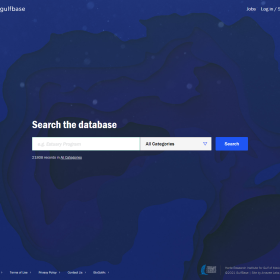
During the 2001 Texas legislative session, Dr. Furgason was able to obtain $15 million from the State of Texas to build a 57,000 square foot facility for the Harte Research Institute (HRI) on the Texas A&M University-Corpus Christi campus. Staff and students moved in five years later.
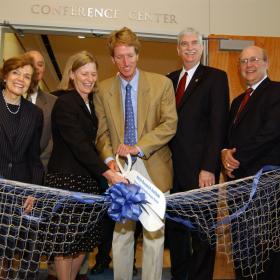
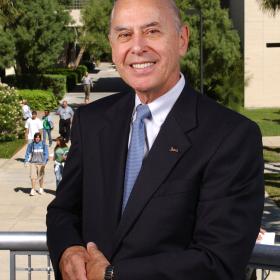
Held in Corpus Christi, Texas, the March summit brought together world-renowned oceanic scientists with leaders of government, business, industry, conservation and resource management to plan for the long-term sustainability of the Gulf.
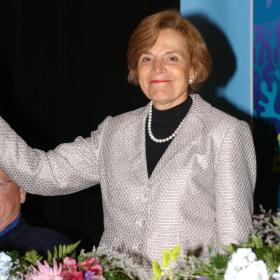
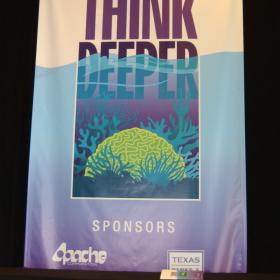
The Trinational Initiative was an effort to advance collaboration and conservation in the Gulf and Western Caribbean among the three countries that border the Gulf: Cuba, Mexico, and the United States.
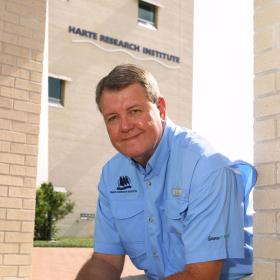
Former Associate Director Gail Sutton, Dr. Jennifer Pollack and Dr. Paul Montagna developed the idea to recycle oyster shell from local restaurants into new reefs. Working with school children and other volunteers, over 45 acres of new reef has been created from recycled shell. The program continues today.

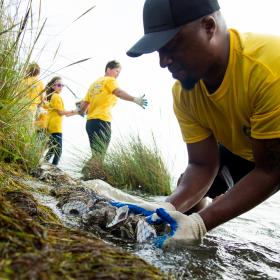
Edited by late Endowed Chair Dr. Wes Tunnell, a series of books published by TAMU Press was created to update our knowledge of the Gulf. The series has 5 volumes.
Funded by the Furgason Fellowship, the Student Workshop on International Coastal and Marine Management (SWIMM) brings together graduate students from Cuba, Mexico, and the United States for a week-long workshop to look at marine science issues across the Gulf.
The largest marine oil spill in history, caused by an explosion of a BP-operated oil rig off the coast of Louisiana, released nearly 5 million barrels of oil before being capped five months later. HRI was a part of the scientific research conducted in response to the spill.

The Coastal Conservation Association provided initial funding of $500,000 to create the Center for Sportfish Science and Conservation (CSSC) at HRI. The Texas A&M University System Board recognized the center in November and named Endowed Chair for Fisheries and Ocean Health, Dr. Greg Stunz as director.
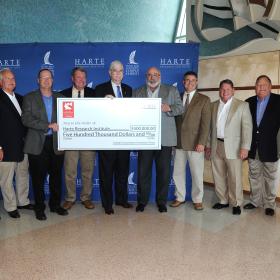
GRIIDC is the Gulf’s most significant data source on the science developed from Deepwater Horizon, assuring that what we have learned is available to scientists and the public.
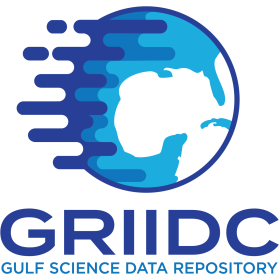
An HRI-led consortium of nine leading marine institutes in Texas, Texas OneGulf was designated by Governor Perry as the first of six such centers in the Gulf. The center is the only one that funds research in all designated disciplines named in the federal RESTORE Act.
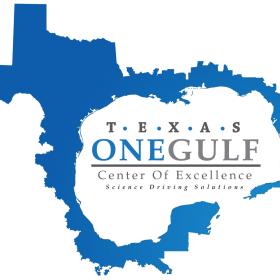
HRI is featured on Discovery Channel’s Shark Week for the first time and has been a frequent participant since. Live viewing and public outreach events that were held attract thousands of shark fanatics each year of an episode.
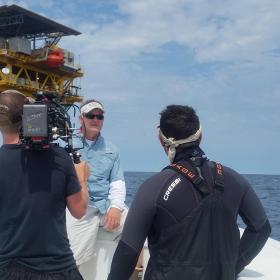
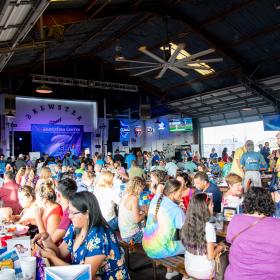
More than 40 scientists from across the Gulf came together at HRI to launch a new initiative to assess the health and well-being of the Gulf. The March workshop developed Gulf EcoHealth Metrics and devised a framework for future evaluations.
Two new international chairs for Coastal and Marine Studies in Mexico and Cuba were named - Dr. Silvia Patricia González Diaz, University of Havana and Dr. Fernando Nuno Dias Marques Simóes, National Autonomous University of Mexico-Merida.
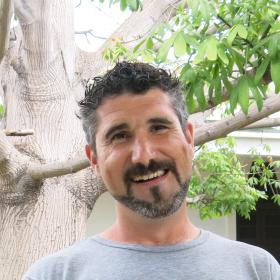
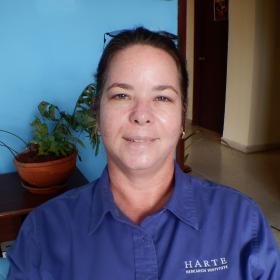

Three new chairs from TAMU-CC join the institute - Dr. Joe Fox, Dr. Jennifer Beseres Pollack and Dr. Michael Wetz. They immediately brought new research, students and funding to advance the HRI vision.
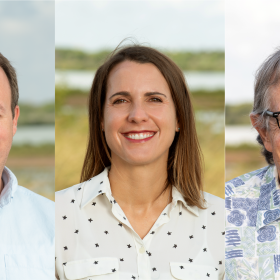
HRI looks back on the life of Dr. Wes Tunnell and what he gave to the Institute, and the Gulf, over his impressive career
The best of Texas’ marine scientists evaluated the upper, middle, and lower coast to help inform resource managers and general public as to the state of the coast, earning a “B-”. It will be repeated in 2023.

HRI Chair Dr. Joe Fox led efforts to establish oyster mariculture for Texas. The first permit was issued in 2021 and the first mariculture oysters were placed in the water in Copano Bay later that year.

Dr. Dale Gawlik, Endowed Chair for Conservation and Biodiversity and Dr. Xinping Hu, HRI Chair for Ecosystem Science and Modeling join HRI. As HRI’s first waterbird expert and oceanographic chemist they bring new skills and perspectives to the institute.

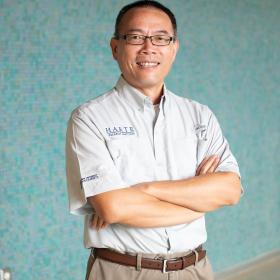
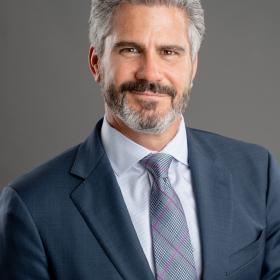

Dr. Greg Stunz, HRI Endowed Chair for Fisheries & Ocean Health and Director of the CSSC, is named Senior Executive Director of HRI following the announcement that Dr. David Yoskowitz departs HRI to become the Executive Director of Texas Parks and Wildlife in November 2022.
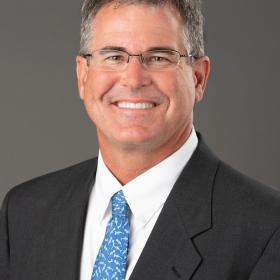
HRI selects Dr. Keisha Bahr as Chair for Coral Reef and Ocean Health, bringing the field of coral reef ecology to the Institute. Dr. Bahr's work focuses on how corals and other calcifying marine organisms react to changing environments.


